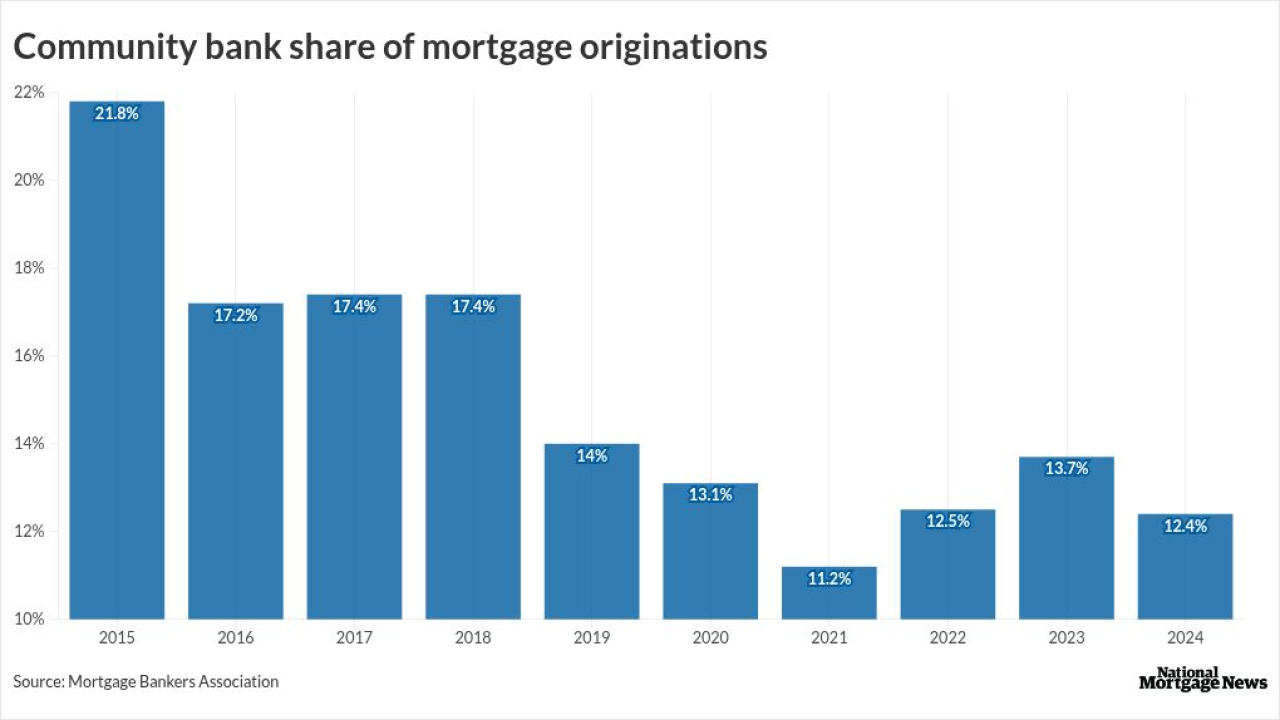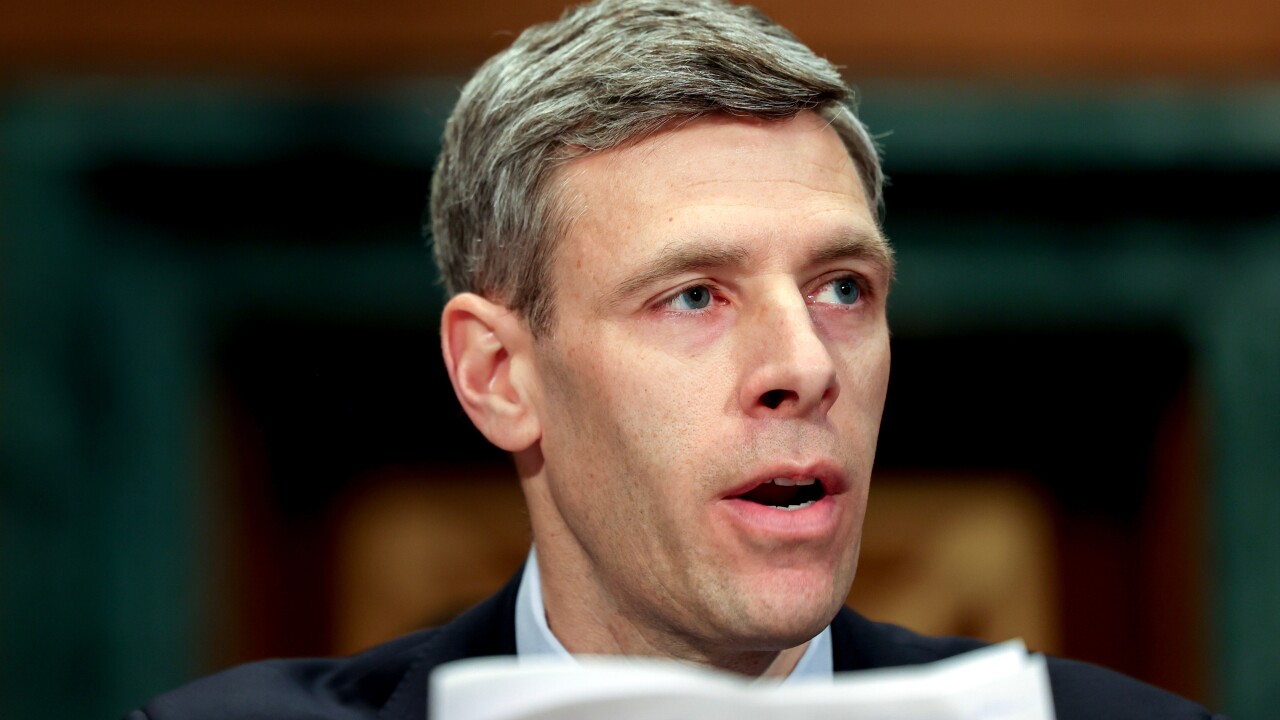Today's hearing on privatizing Fannie Mae and Freddie Mac will focus not on cutting their government ties but on protecting taxpayers from bearing the brunt of their federal sponsorship, Rep. Richard H. Baker said.
Processing Content
In an interview Tuesday, Rep. Baker, chairman of the House Banking subcommittee on capital markets, securities, and government sponsored enterprises, said he will investigate whether Fannie Mae and Freddie Mac can operate safely over the "long haul."
"We are in an environment where the GSEs have operated successfully and profitably, principally because of overall market conditions, where interest rates have been stable and there is relatively low degree of risk," the Louisiana Republican said. He said he wanted to be sure they can do that during rocky times, and that the Office of Federal Housing Enterprise Oversight can oversee the financially complex entities.
In a separate interview Tuesday, Rep. Bruce F. Vento, D-Minn., a staunch supporter of the agencies, said he will focus on the Congressional Budget Office's finding that the agencies are "spongy conduits" that retain one- third of the implicit federal subsidies they draw.
The budget office reported last month that Fannie Mae, formally the Federal National Mortgage Association, and Freddie Mac, the Federal Home Loan Mortgage Corp., received implicit subsidies of $6.5 billion last year. June O'Neill, budget office director, will testify at the congressional hearing.
The General Accounting Office, which also will testify, placed the subsidy last year at between $2.2 billion and $8.3 billion.
Mr. Vento said he believes the budget office is overstating the federal benefits that Fannie Mae and Freddie Mac receive and understating those they pass on to consumers.
"Before you jump to conclusions about the $2 billion" in implicit subsidy that the budget office says Fannie and Freddie retained, Mr. Vento said, "you ought to see if they at least had it in their hands."
The government reports to be debated today were mandated by a 1992 law. Although they deal with the potential costs and benefits of severing the government's links to Fannie and Freddie, lobbyists generally agree that "privatization" is not a politically viable - or even desirable - option.
Instead, they say, today's debate will aid the building of a new consensus among budget hawks and agency competitors that Congress should limit the powers of Fannie and Freddie.
Among the options mentioned are user fees on agency debt, more financing for low-income housing, tighter controls on executive compensation, and limits on new business lines. Each of the options would limit either Fannie and Freddie's profits or their operating independence.
Karen Shaw Petrou, president of ISD Shaw Inc., said big banks and financial services companies are increasingly worried that Fannie Mae and Freddie Mac will grow to dominate new markets, such as that for home equity loans. Ms. Petrou predicted that big banks will fight to curb the growth of Fannie and Freddie.
Even avid supporters of the agencies say momentum may be slowly building on the issue, which some are labeling "limitization." Stephen Dreisler, senior vice president of government affairs at the National Association of Realtors, said the growing "love-hate relationship" of their agencies and their customers could add fuel to the drive for such limits.
"The vast majority of people feel the system works incredibly well, and the implicit subsidy does get passed along to the borrower," Mr. Dreisler said. But many lenders believe that the mortgage agencies "are so big and financially powerful that they have become a potential threat to anybody in the housing-finance feeding chain," Mr. Dreisler said.
"We do not share that view, but I understand those who do," he said.
Mr. Dreisler said he can see how Fannie and Freddie might be hit with new fees or other limits "as part of some bigger, broader budget deal."





